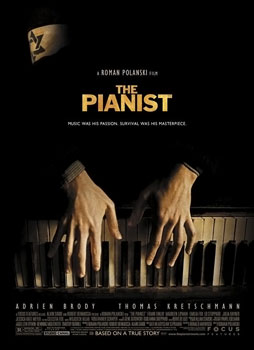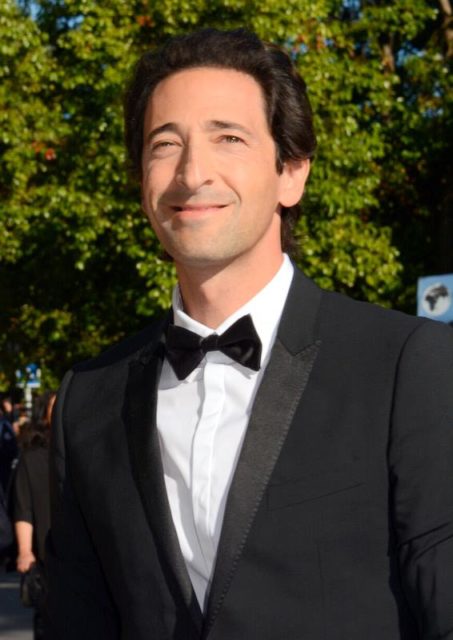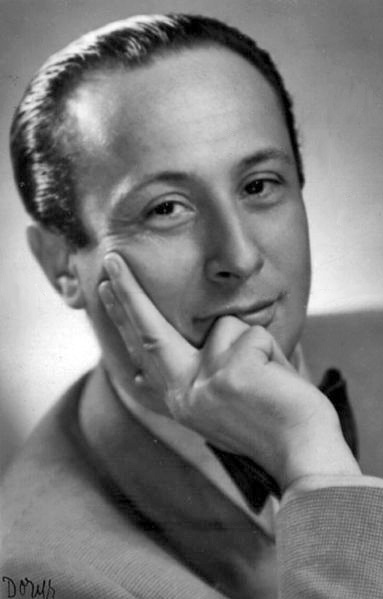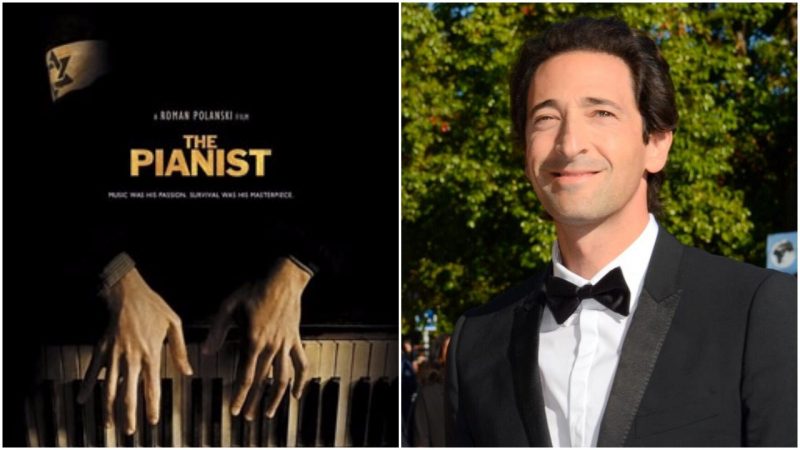When Roman Polanski decided to direct The Pianist, the touching story about the Polish Jewish composer Władysław Szpilman based on the autobiographical book by the same name, it was clear that casting the right actor would be challenging.
Around 1,400 actors hoping to get the opportunity to portray Szpilman went for the audition for the role in London, but none of them were right for the part.
Polanski had set his mind on Joseph Fiennes for the title role but he turned it down because of a previous commitment to a theatrical role. After a long and exhausting process of searching for the right actor, Polanski met with Adrian Brody, at that time still anonymous to the general public. A casting agent had spotted Brody in a small part in the war film The Thin Red Line by Terrance Malick and recommended him to Polanski.
Ultimately, Brody got the part and showed himself as an immensely dedicated, talented and adequate method actor.

Brody, at that time was aged 28, and was aware of the sensibility and nature of the character that he had to portray; so aware that he brought method acting to a new level.
To get closer to Wladyslaw Szpilman, the Jewish pianist who lost everything but survived the horrors of the Warsaw Ghetto, Brody completely changed his comfortable lifestyle.
“The beauty of what I do, is it gives you the opportunity to give up who you are and attempt to understand someone else, another time, other struggles, other emotions.”If you really do experience a lot of them, you connect, and it’s very rewarding.” Brody told BBC
To achieve the mindset of a man who lost his home, his family and life as he knew it, Brody striped himself from all the commodities he had and got rid of the comfortable way of living.
“I gave up my apartment, I sold my car, I disconnected the phones, and I left,” he says. “I took two bags and my keyboard and moved to Europe.”

It was said that Brody had broken up a long term relationship to achieve a more authentic performance in the Holocaust drama.
Brody had not only learned to play the piano like a pro by practicing for fours a day, but he learned how to play specific passages by Chopin. He was on the way to accomplish what he had in mind but was still not quite there.
Having escaped the ghetto, Szpilman had to search for food within the bombed ruin of Warsaw. As the movie was shot in reverse chronological order, Brody had to look emaciated at the beginning of the filming. The actor went on a crash diet and within six weeks lost 30 pounds, at his thinnest he weighed 130 pounds.

“There is an emptiness that comes with really starving that I hadn’t experienced,” he says.“I couldn’t have acted that without knowing it. I’ve experienced loss, I’ve experienced sadness in my life, but I didn’t know the desperation that comes with hunger.”
The actor recalled that he had just enough energy for dialect lessons, rehearsals, piano lessons and was always craving for food. On the top of it all, he was deeply immersed in Szpilman’s memoirs and overwhelmed by the pain and horror of the Holocaust.

“I was missing everyone and everything good. But that put me right in character.I want to feel that I’m experiencing something, I want to feel the journey, and I felt it.However, there were times when I was concerned that I might not be able to get out of it sane because I didn’t realize how far it had taken me.” the actor explained in an interview for BBC
After the filming had finished, it took about half of a year for Brody to get his sanity back and to settle back into his ordinary life.
Despite the hardships of the process, the role in the Pianist was the big breakthrough for Adrian Brody, who received widespread recognition and at age 29, became the youngest actor to win an Oscar for a title role.
